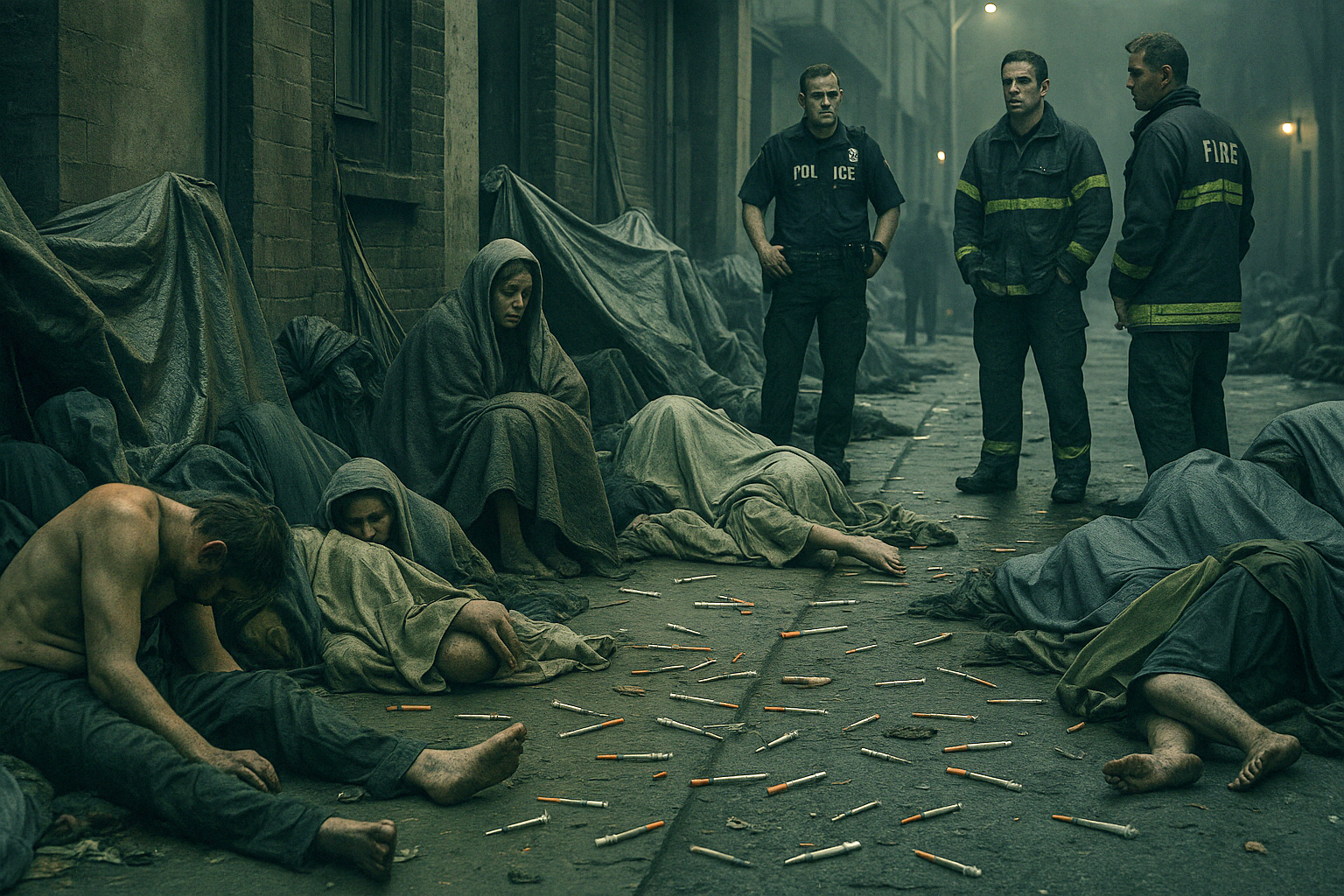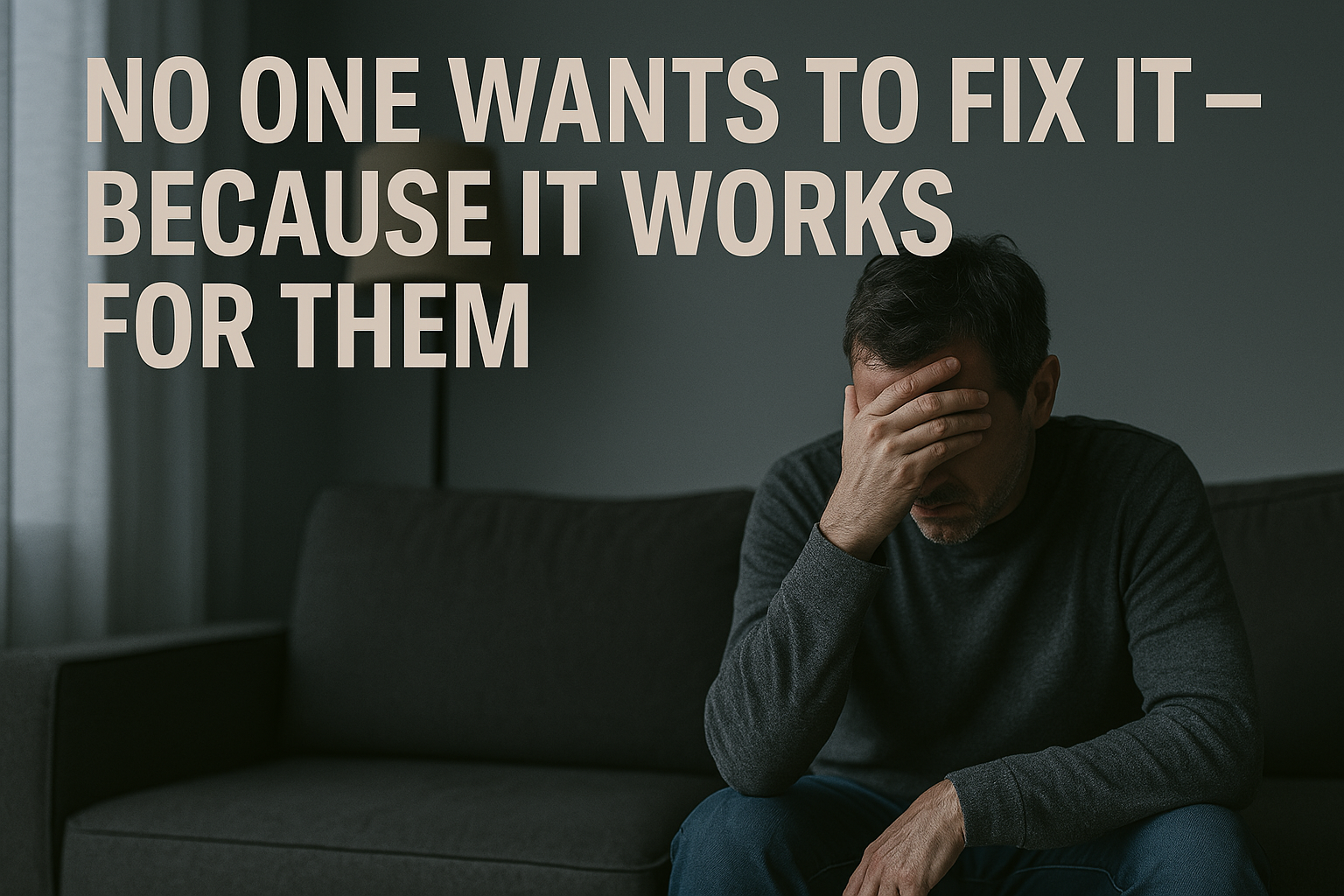Quote: “If the system cures you, the system loses you—and your funding.”
Chapter 10: No One Wants to Fix It – Because It Works for Them
It’s time to say what no one wants to admit:
This crisis works—for some.
It keeps nonprofit budgets growing. It feeds academic grants. It secures government contracts. It gives politicians a platform. It ensures funding cycles. It creates jobs in an economy where other sectors are failing.
Addiction is now a managed condition, not a curable one. And the longer it lasts, the more secure the system becomes.
The Crisis That Never Ends
A revolving door of suffering. Addicts cycle through shelters, supervised sites, short-term detox beds. They get triaged, referred, monitored, and released—only to return days or weeks later.
We call it care. But it’s routine.
Each visit justifies more funding. Each overdose reversed becomes a success metric. Each death is a tragedy, but never a turning point.
Recovery Doesn’t Pay
Here’s the hard truth: if everyone got clean, the system would collapse. Programs would lose clients. Nonprofits would lose relevance. Government departments would shrink.
In this model, the addict is not just the patient. They are the product.
No Disruption, No Innovation
Why aren’t there more long-term recovery farms? Why aren’t we using AI to track progress, or investing in purpose-driven rehab programs that include job training, community service, and accountability?
Because those approaches threaten the existing order.
Real solutions are disruptive. They challenge power. They force systems to shrink. And they demand results—not just effort.
The Illusion of Progress
We have meetings, conferences, media panels, and task forces. But very few measurable wins. Addiction rates rise. Deaths rise. And still, the same voices lead the same conversations, using the same failed models.
Why? Because the crisis has become their brand.
A Call for Reckoning
This series began with a question: Is fentanyl the real problem?
The answer is no.
Fentanyl is the weapon. The real problem is a system designed to respond—not resolve. A culture of dependency dressed as compassion. A billion-dollar apparatus built to manage misery.
If we truly want change, we must defund dysfunction. We must demand transparency, accountability, and courage. We must elevate those who seek solutions—and retire those who rely on the problem.
Because until the system loses its incentive to keep people sick, it will never have a reason to make them well.
The crisis will not end until the profits do.
And that truth, more than any drug, is what kills.

